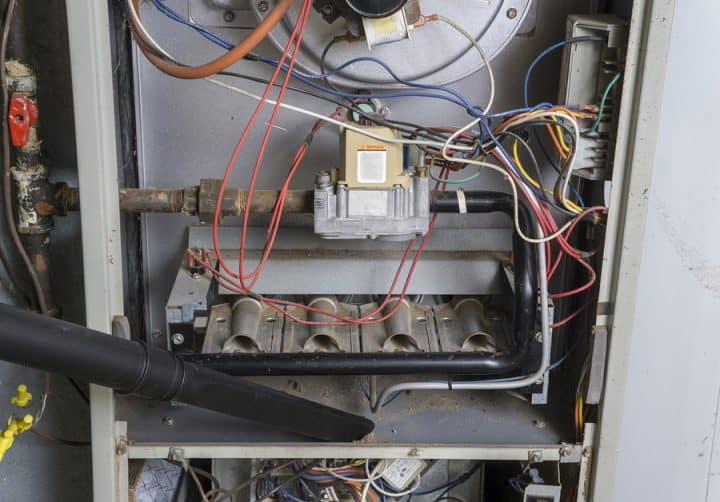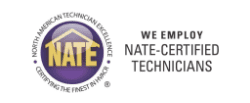Furnace Preparation this Fall
Furnace preparation is key to a comfortable and warm Fall and Winter. After all, it always seems like, in a blink of an eye, fall is here and gone, and following it is the winter season. While it’s tempting to just sit back and enjoy the foliage, your furnace will need some preparation this fall season. No homeowner wants to be caught in the dead of winter with a busted furnace. A dysfunctional furnace can result in expensive repairs, dangerous safety hazards, and higher utility bills. Luckily with the proper maintenance, your furnace will not only work as it should but work effectively this winter season.
How to Know When it’s Time for a Repair
Your furnace needs routine cleaning and preparation to function properly, but sometimes it will need a professional repair. Annual inspections are recommended to spot any potential problems early, as it can be tricky to notice anything wrong with your furnace. Treating the issues early ensures your furnace runs to its warranty and also works efficiently to keep your house warm. Furnaces are expensive to replace, and nobody wants a busted furnace during the winter season. To avoid a costly replacement, here’s what you need to look for.
- Age. Furnaces have an average lifetime of 15-30 years. If your furnace is reaching the last years of its warranty, it might be time to consider a replacement. Check your furnace for any cracks, rust, or damaged pipes and venting systems, as those are all warning signs of an aging furnace. Furnace technology has improved since your last installation, and with energy efficient options, replacing your furnace help you save up to 30 percent of your annual energy bill.
- Strange noises. A furnace is a complicated appliance filled with multiple different components. If you start hearing strange sounds, it could a multitude of problems such as a gas leak, improperly sized unit, or a malfunctioning blower fan. Squealing and screeching sounds can indicate a motor in need of lubrication or repair. Loud bangs and pops coming from your house’s duct-work could be related to a sizing issue. Regardless of what strange sound you hear it’s usually an indication of a bigger problem and should be treated right away.
- Foul odors. If you smell rotten eggs, call an HVAC technician immediately as there could be a gas leak. Natural gas is odorless, which is why manufacturers add a chemical called mercaptan in furnaces to give off that rotten egg smell.
- Inconsistent temperatures. If you notice a fluctuation in temperature, that perhaps one room is warmer than the other, there could be a problem with your furnace. A functioning furnace should distribute heat evenly throughout your house. If you think something is wrong, spend some time in different rooms or routinely check your thermostat. The issue could also be a problem with your ductwork.
- High utility bills. A dysfunctional furnace is an overworking furnace, which means higher utility bills. If you notice your heating and cooling costs are gradually hiking up in cost, the problem might be with your furnace.
- If you find condensation or moisture near your furnace or ventilation system, there could be a major malfunction such as leaky ductwork, humidification problems, or an aging furnace.
How You Can Do Furnace Preparation
Constant maintenance keeps your furnace running as it should, which also helps you cut down on your utility costs. Winter brings with it snow, ice, and frigid temperatures, and inevitably you’ll end up relying on your furnace. Nobody wants to deal with a broken furnace while combating the cold, and luckily you don’t have to. Here’s how you can prepare your furnace for even the toughest of winters.
- Clean the combustion chamber. It’s important to remember when preparing your furnace, that inside the combustion chamber a lot of soot, water vapor, and debris can collect. Soot buildups can cause the chamber walls to erode, so it’s important to clean inside your furnace’s combustion chamber with a small wire brush.
- Inspect the flue pipe. The exhaust flue is what emits all the gas burnt from your furnace, and in order to prepare your furnace, it needs to be free of holes. An exhaust flue with any holes is at risk of leaking out carbon monoxide and other flammable gases. Small holes can be patched up with foil tape, but an exhaust flue that is too corroded will need to be replaced immediately.
- Change the air filter. Both your air conditioner and furnace have an air filter that collects dust, allergens and other debris. It’s recommended to change your furnace’s air filter every one to two months, but it depends on what type of air filter your furnace uses, as well as allergies and pets.
- Cleaning floor vents. Proper furnace preparation also involves cleaning your floor vents, as they too can collect a lot of dust and debris. Not only will cleaner floor vents keep the air circulating throughout your house clean, it keeps your furnace from overworking itself.
- Prepare your home. It’s not all on your furnace to keep your house nice and toasty; it’s much more of a team effort. That’s why when fall comes, it’s important to make sure your house is properly ventilated. Check for any air leaks such as cracks or unsealed doors and windows, or broken insulation. Make sure all your vents are open so the heat can circulate properly.
Don’t Let Yourself Be Caught Off-Guard
There’s much you can do to prepare your furnace for the incoming winter season, and luckily most of it takes little to no cost or effort. Some furnace preparation, however, does require an HVAC professional’s help. If your furnace needs a tune-up or repair, it’s never a good idea to put that off. If it’s time to prepare your furnace, then don’t hesitate to call an HVAC technician and schedule an HVAC inspection today.
Call Cranney Home Services today for more tips about furnace preparation!
North Shore and
Merrimack Valley Areas include:
Salem | Andover | Danvers | Lynnfield | Melrose and surrounding cities

















